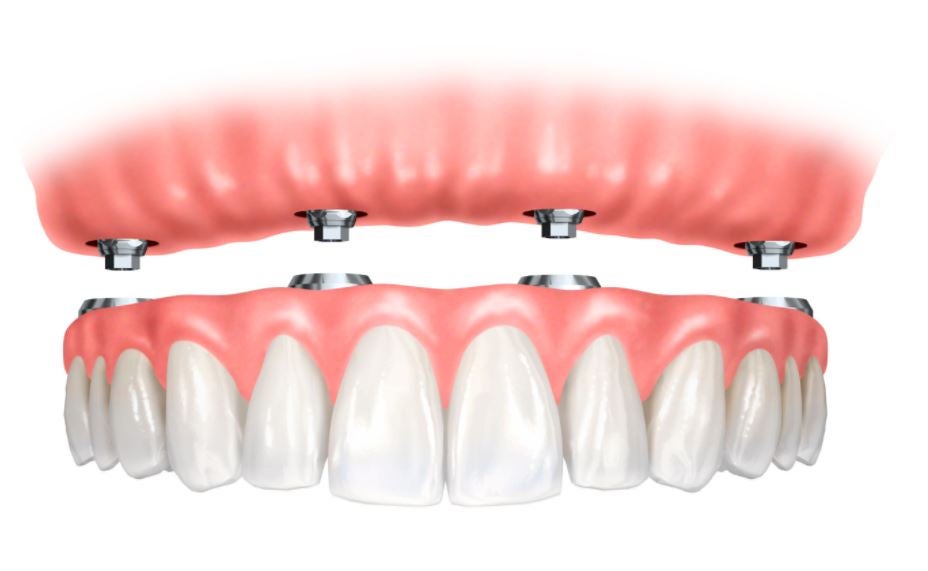Some Known Questions About Dental Sense.
Table of ContentsMore About Dental SenseSome Known Factual Statements About Dental Sense Top Guidelines Of Dental Sense6 Simple Techniques For Dental Sense
are clinical devices surgically dental implanted right into the jaw to restore a person's capability to eat or their look. They provide support for man-made (phony) teeth, such as crowns, bridges, or dentures. When a tooth is shed because of injury or condition, an individual can experience difficulties such as quick bone loss, malfunctioning speech, or changes to eating patterns that lead to pain.Dental implant systems contain a dental implant body and oral implant abutment and might likewise include a joint addiction screw. Dental veneers cost. The oral implant body is surgically inserted in the jawbone instead of the tooth's root. The dental implant joint is normally affixed to the dental implant body by the joint fixation screw and extends via gum tissues right into the mouth to sustain the connected man-made teeth
(https://www.domestika.org/en/dentalsense1)Structure of The Oral Implant System selecting oral implants, talk to your dental supplier regarding the prospective benefits and dangers, and whether you are a candidate for the procedure. Things to consider: Your general health and wellness is an essential variable in figuring out whether you are an excellent prospect for dental implants, the length of time it will take to heal, and the length of time the implant might stay in location.
Cigarette smoking might impact the recovery process and decrease the long-lasting success of the implant. The recovery process for the implant body might take several months or longer, throughout which time you typically have a temporary joint instead of the tooth. the dental implant procedure: Thoroughly adhere to the dental health directions offered to you by your dental company.
Dental Sense Things To Know Before You Buy
Implant failure can cause the need for an additional operation to take care of or replace the dental implant system. Brings back the ability to chew Brings back cosmetic look Assists maintain the jawbone from diminishing because of bone loss Protects the health and wellness of the bordering bone and gums Assists keep surrounding (nearby) teeth steady Improves lifestyle Damage to surrounding natural teeth throughout implant positioning Injury to the surrounding cells throughout surgical procedure, such as sinus perforation Injury during surgical procedure (for instance, fracture of bordering jawbone) Insufficient function, such as seeming like the teeth do not attack with each other generally A feeling that the tooth hangs or turning in area resulting from a joint screw loosening up Implant body failing (looseness of the implant body) because of systemic infection, which may be more probable in people with unchecked diabetes due to regional infection in bone and periodontals sustaining the dental implant body because of postponed recovery, which may be more probable in clients that smoke Difficulty cleansing the periodontals around the dental implant, resulting in inadequate dental health Unattended periodontal condition Post-surgical feeling numb due to nerve impingement or damage Always alert healthcare companies and imaging specialists that you have oral implants before any type of magnetic resonance imaging (MRI) or x-ray treatments.
FDA is not familiar with any kind of adverse occasions reported for MRI or x-ray procedures with oral implants. Oral implants systems are generally constructed from materials that adhere to worldwide consensus requirements of the International Company for Standardization (ISO) or ASTM International. These requirements have information of what makes a risk-free product.

A dental implant is a framework that replaces a missing out on tooth. With screw-like tools, the surgeon inserts a dental implant right into the jawbone, and it acts as an anchor for a synthetic tooth, called a crown.
The Ultimate Guide To Dental Sense
Some people are not eligible for dental implant surgery. It is for dental specialists to operate on individuals with: intense illnessuncontrollable metabolic diseasebone or soft cells illness or infectionIf these problems are dealt with, an individual can have the surgical procedure. In, dental surgeons avoid operating on individuals with: If people with any of the above undergo dental implant surgical procedure, there is a higher danger of the dental implant stopping working.

Dental dental implant surgery is a personalized procedure. It's not the exact same for everyone. However the complying with provides a general introduction of what you can expect your dental expert, oral specialist, periodontist or prosthodontist to do: Place the implant surgically. Offer you time to recover. Affix the article and last crown, bridge or denture.
Next, your doctor will very carefully put the dental implant right into your jaw. Your specialist will certainly rearrange your gums and shut the incision with stitches. If your dental implant is near the front of your mouth, your dental professional will make a momentary tooth for you to use up until you recover. In this way, you won't have a gap in your smile while you recover.
5 Easy Facts About Dental Sense Explained
Your service provider can inform you what to expect in your situation. Throughout the healing phase, your jawbone needs to fuse to the oral implant. This process, called osseointegration, is crucial for security and long-term success. This procedure can take anywhere from three to nine months. Sometimes, it might take much longer.
Once your dental implant heals, your dental practitioner can attach the joint (tiny connector post) and your final repair (crown, bridge or denture). This generally takes about one hour to finish and might require a second minor surgical treatment. You check my source should not feel any discomfort throughout your dental implant treatment due to the fact that your copyright will use medicine to numb your gum tissues.